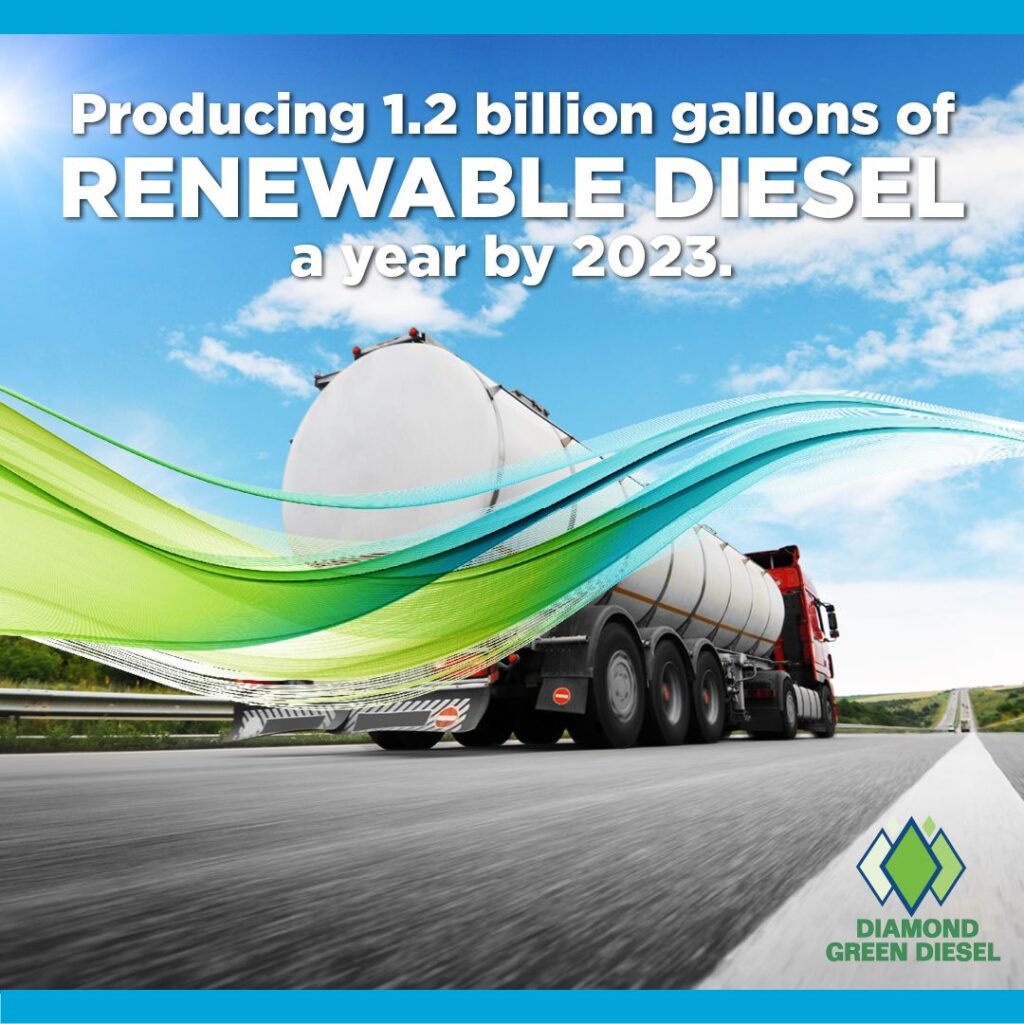Valero Energy Corporation, in conjunction with its partner Darling Ingredients Inc. will become the U.S. biggest biodiesel producer when its joint venture project Diamond Green Diesel (DGD) is completed at sites in Texas and Louisiana.
This joint venture is set to open to commercial activities by 2023, and it would nearly quadruple current Valero’s biodiesel productive capacity.
The project intends to build, alongside Darling Ingredients, a 470-million-gallon renewable diesel plant in Port Arthur, Texas; expansion contemplates a $1,45 billion investment.
Once the facility is completed, the DGD project will be able to produce 1,2 billion gallons of renewable diesel per year. This would be a reality around 2023, according to the company.
Also, DGD will see its renewable diesel plant expanded; the one next to Valero’s St. Charles refinery, in Norco, Louisiana. According to Valero, this expansion will ad further 690 gallons of productive capacity by the end of 2021.
Recommended for you: Oil prices will be stable almost all of 2021: Reuters


Valero, one of the first players in biodiesel market
About the expansions, Joe Gorder, Valero’s CEO, said: “We expect low-carbon fuel policies to continue to expand globally and drive demand for renewable fuels. We are applying our liquid fuels expertise to continue to expand our long-term competitive advantage in low-carbon transportation fuels.”
The Diamond Green Diesel project began producing this sort of bio fuels back in 2013; which made the project and the company one of U.S.’s early players in this sector.
In this regard, Marc Amons, Wood Mackenzie analyst, said, quoted by Reuters: “Valero has been a relatively early mover on renewable diesel in the U.S.”
“Once this is completed, assuming no other large unknown projects come online, it would place them as the largest renewable diesel producer in the United States.”
Based in Norco, Louisiana, Darling Ingredients collects cooking grease, animal grease and other by products, from which the biodiesel is made from, as they can directly replace fossil fuels for biodiesel production. Still, biofuel must be blended with traditional diesel in order to be functional in motor vehicles.

